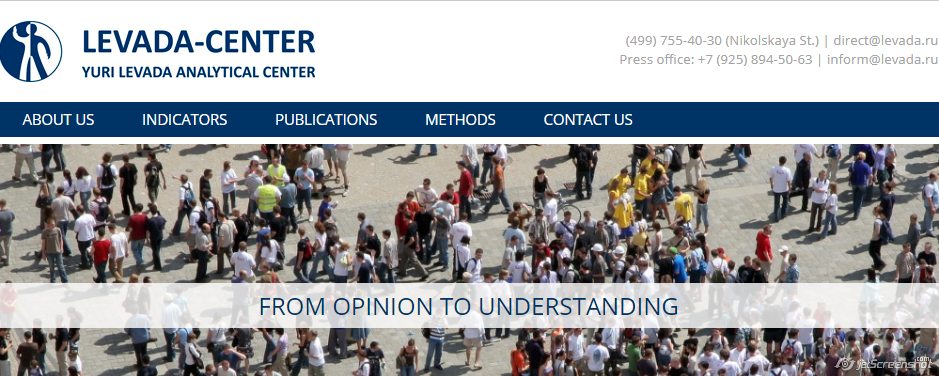By Paul Goble, Window on Eurasia
Staunton, March 13 – Many people have been struck by new polls showing that Russians have remarkably positive attitudes about Ukrainians and wish to live in peace and harmony with them, results that suggest the Kremlin’s propaganda efforts are no longer obtaining the results they did earlier, Ivan Davydov says.
But these Levada Center poll results, which are echoed by polls showing an equally positive view of Russians by Ukrainians, represent good news for the Russian and Ukrainian people but extraordinarily bad news for the Kremlin, the head of the Open Media Foundation says.
That is because, Davydov says, they in the Russian case that people are tired of the regime’s continuing obsession with Ukraine to the exclusion of almost everything else and want their government to focus on Russian problems rather than talk about Ukraine as if that could serve as a distraction.
The Kremlin and its propagandists achieved remarkable success early on it getting Russians to have a negative attitude toward Ukraine, often by suggesting the implicit question to them: “You don’t want to live the way they do in Kyiv, do you?” and getting the response the regime wanted.
But now, the analyst says, Russians are responding somewhat differently and that is “bad news” for the propagandists and the regime they represent. Russians now say “In general we do not want to be equated with Kyiv. We want you to remember that you live in Russia and have tried to solve our problems.”
“The next step,” Davydov says, “one which a year ago seemed unthinkable but now does not appear impossible at all is for them to answer: ‘Yes, we want things here to be like they are in Kyiv. We want that citizens can change their rulers.”
The powers that be in Moscow “don’t have an answer to that,” and their propaganda doesn’t have a new trick up its sleeve. Moscow TV tells Russians about poverty in Ukraine, but Russians can see poverty around themselves. And that makes it more difficult for Russians to view Ukrainians as their chief enemy.
They want television to talk about their own problems, and they want their rulers to address them, not spend all their time talking about another country.
By Paul Goble, Window on Eurasia





